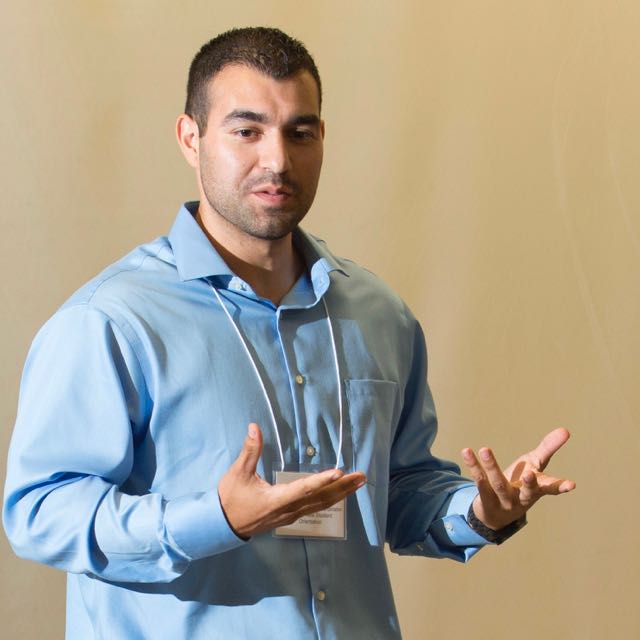Alumni Spotlight: Fernando Vargas
Teacher, San Bernardino City Unified School District 
Major & Concentration:
CSUF B.S. Biology with a concentration in Marine Biology, 2013; CSUF Credential Program, 2016.
What are you doing now?
I teach six periods of biology at Arroyo Valley High School in the San Bernardino City Unified School District.
What were you involved with at Cal State Fullerton?
I was a research scholar in the NSF-funded Southern California Ecosystems Research Program (SCERP, 2010-2013). As an undergraduate researcher in SCERP I worked in Dr. Dickson's lab investigating the effects of temperature fluctuations on hatching success and development in the California grunion. I was a member of the Student Science Alliance Club in 2010 and the Undergraduate Biology Club in 2011.
How did Cal State Fullerton prepare you for your current career?
Cal State Fullerton prepared me for my career by helping me develop my skill set in writing, critical thinking, and public communication. Regardless of the career, these skill sets are fundamental to any career, which I developed through my elective and major courses. Some of the biggest help that I received was from my research advisers, who were invested in me and really cared about my success. My research advisers were available throughout the week to not only help with independent research, but also provide constructive criticism on scholarship applications or cover letters. This would ultimately help me take advantage of other opportunities that I utilized to enter the teaching field. As a high school teacher I use the skills and knowledge that I learned at Cal State Fullerton every single day.
What advice would you give to incoming, current, or graduating biology students?
I suggest that all incoming students work on identifying their strengths and weaknesses both in and out of the classroom. Since college is about self-responsibility, it is important to plan your study time when you work best. For example, I found out that I struggled in classes that were only one day a week, so I registered for classes that met at least three days a week. I would also do most of my studying and homework at night, which is when I work most efficiently and effectively. Students need to set themselves up for success by arranging their schedule to maximize their learning.
For current students, I suggest visiting professors' office hours frequently regardless if the material is easy or not. Office hours not only help with understanding the material better, but the professor gets to know you on a personal level and you can then use that relationship so they can write strong letters of recommendation for you. Additionally, ALL biology students regardless of their careers should join a research lab on campus or do an internship, like Research Experience for Undergraduates, funded by the National Science Foundation. These hands-on experiences help you learn key laboratory and field skills and develo your critical thinking skills, both of which are extremely useful when preparing for a career.
